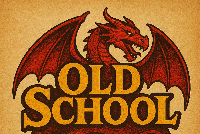Unknown Armies is pretty simple for players, so long as you're running a street-level campaign (where it's not recommended to permit Adepts and Avatars, the "casters" of the setting). Each player has 5 stresses, 4 attributes, 3 passions, and a number of skills under each attribute (limited by your rating in each attribute). With one exception that only applies to Adepts (and only rarely), all actions are d%, roll under attribute/skill as appropriate. If the roll is for the character's one skill marked as their obsession, the player can flip the digits of the roll (eg, 51 becomes 15). Once per session per passion, if the passion applies to the situation (GM discretion), the player can either flip-flop the roll, or reroll. For mundane characters, that's the large majority of what they need to know. (There's other stuff, like combat timing, car chases, etc. but IME those sort of rules can be learned during gameplay rather than memorized at the start.) The GM does need more intimate knowledge of the setting and rules than that, so if the GM needs simplicity as well, then it wouldn't be the greatest choice. FWIW, players have a lot of freedom in selecting skills and passions. ("A lot of freedom" as in "pick absolutely anything that fits.") As an example, here's some of "Big Steve" from one of the published one-shots: Rage: Betrayal Fear: Being alone Noble: Kind and generous to waifs and strays Body: Athletics, Chasing, Thuggery Speed: Dodge, Drive, Shoot Things Mind: General Education, Notice, Sports Fan Soul: Charm, Intimidate, Lie From the same adventure, Christine Rice has the Body skill "Stay Up All Night" and Eric Goodborough has the Body skill "Fake Seizure." Alex Abel (major NPC in the canon setting) has a skill "Making Gobs of Money." Even the skills which players are given for free, you're encouraged to fluff up as appropriate for the character; everyone gets "Struggle," but Big Steve has "Thuggery" instead, for example. Steve has "Chasing" instead of "Run," while Steve's boss has "Run Away." Adepts and Avatars can get complicated for the player, though not all are on the same level. Generating minor charges for a Dipsomancer is pretty simple (Dipsomancers aren't called "Booze Hounds" for nothing.) An Entropomancer has to put in a bit more effort to generate a minor charge, even if they might come away from it with only a wounded pride, rather than a wounded liver.













